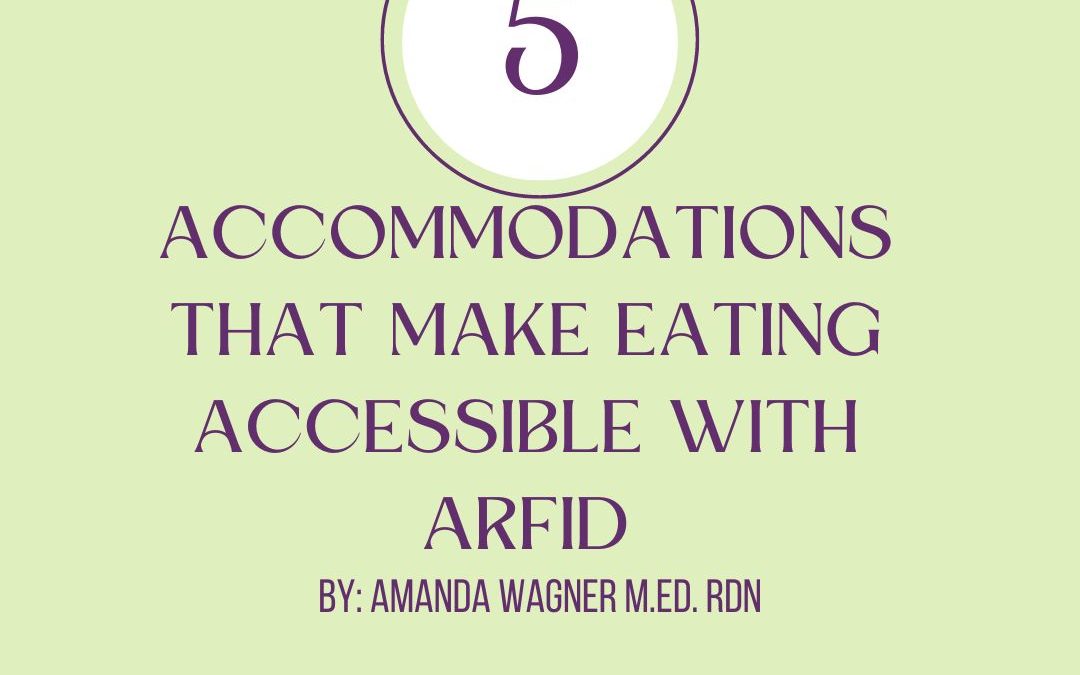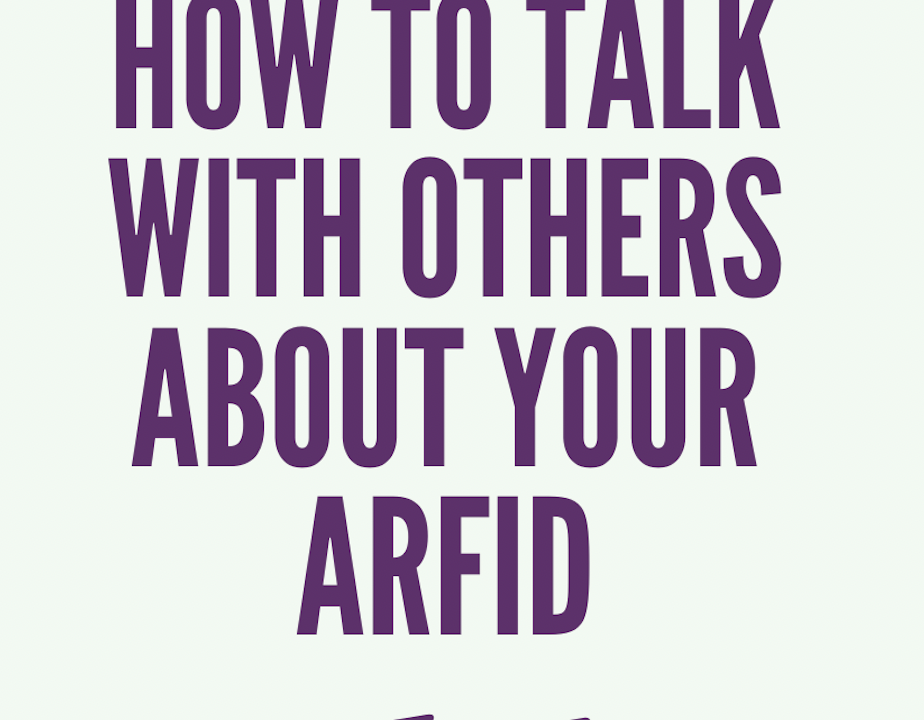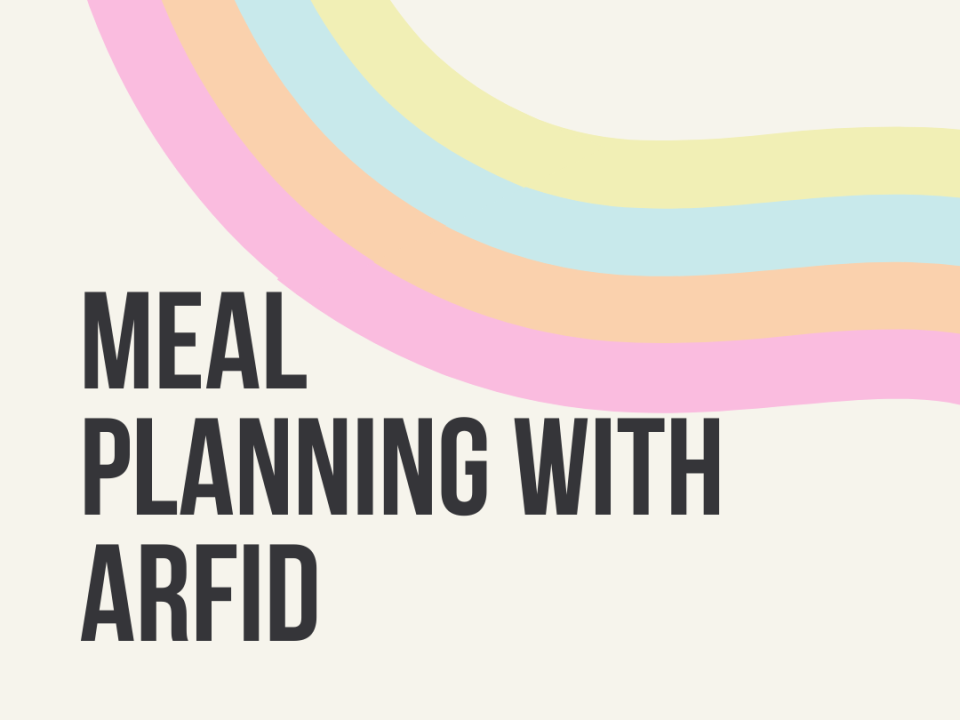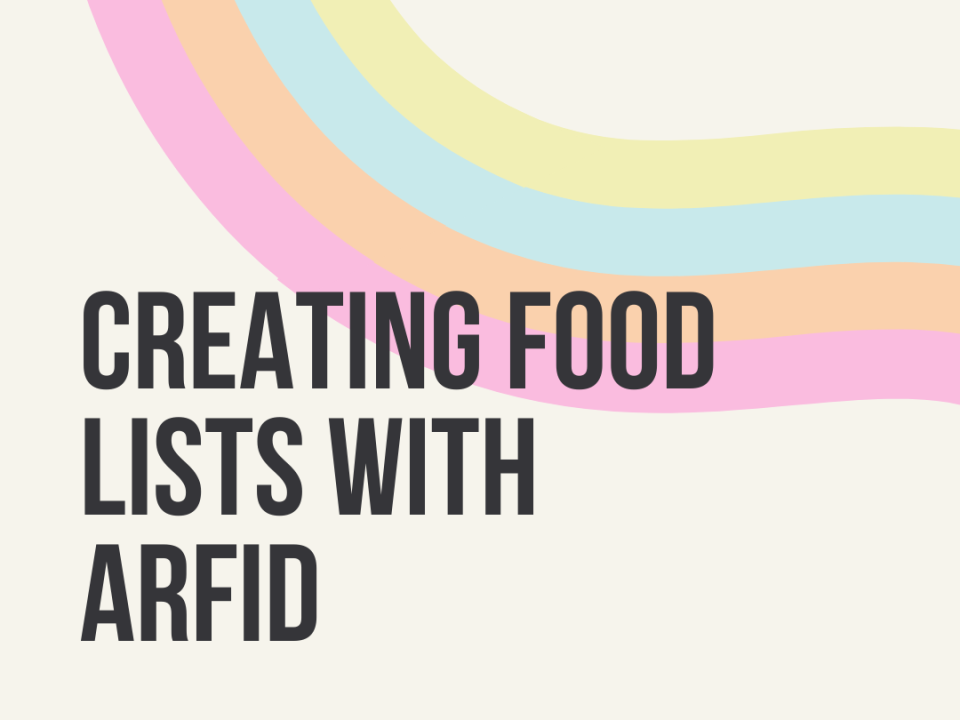Accommodations and Making Eating more Accessible with ARFID

ARFID + Emetaphobia and Becoming a Dietitian
April 27, 2023
ARFID and Cannabis: Results from a Lived Experience Survey Project
June 29, 2023This post is a follow up to Amandas first post sharing her ARFID story: ARFID + Emetaphobia and Becoming a Dietitian.
In this post Amanda is sharing 5 ways she accommodates her life with ARFID and makes eating more accessible for her. She hopes these tips are helpful and give you some ideas of how to live with and accommodate ARFID in your own life.
Author: Amanda Wagner (she/her)
1. I always keep my top safe foods in stock at my home.
This includes my “I absolutely do not want to eat right now and everything sounds bad, but I know I need to eat” food. For me that is a few specific brands of vegan cereal eaten dry without milk or a specific brand of quick oatmeal packets made with water. For others, that might be a nutrition supplement drink, such as Ensure or Kate Farms.
If possible, let your partner, roommates, or family members you live with know what you safe foods are. In case you cannot fathom braving a grocery store, cafe, or restaurant, they can obtain it for you. If you live alone, take advantage of grocery delivery or food delivery services. I cannot tell you how many times I’ve had a bowl of dry cereal right before bed just to make sure I ate something that day. And it’s still my go-to on a day of high stress or lower than I’d like eating. It’s also okay to eat your safe food or foods multiple times in the same day if that means you are actually eating.
2. Distracted eating is okay!
There I said it. I know there’s a whole movement around mindful eating and awareness around your hunger, fullness, and other cues and this can be helpful. This is just not often the case in ARFID. Many people with ARFID do not have regular hunger cues or good interoceptive awareness either due to their ARFID itself or because many people with ARFID are also neurodivergent. When the last thing I want to do is eat, I’ll grab a safe food and watch something on Netflix, ask my husband to tell me about his day/ a story, play a video game as I eat, or even listen to an audiobook or podcast if I’m eating solo.
3. It’s okay and potentially helpful to take a multivitamin!
Because I am vegan, I’ve been taking supplements, like B-12 and Vitamin D, for years as it is challenging to get enough of those vitamins from a vegan diet alone. Iron has also been challenging for me as a vegan female athlete with ARFID. I have also had to take other supplements when my ARFID was worse and my list of safe foods was much more limited, such as folic acid. Now I take a more general multivitamin just to cover my bases as living with ARFID is full of ups and downs. And then if I have any specific deficiencies, I will add an additional supplement. As a note, you should not take supplements without blood tests and supervision from a doctor, dietitian, or other provider as you can take too much of certain supplements. Nutrition shakes, such as Ensure, Boost, and Kate Farms, are another option as they are fortified with vitamins and minerals you may fall short on when you’re struggling more with your ARFID.
4. Do not force food exposures.
This one is huge and really misunderstood by many providers who are currently treating ARFID. Food exposures should always be client led, rather than forced. Of course eating as varied a diet as possible is ideal, but trying to make someone eat a bunch of things they have never had, are afraid of, or do not like the taste of is not helpful and will not lead to the best results. Fed is best is my number one motto! Even if that means eating only a few different foods in a day and then filling in the gaps with supplement shakes, a multivitamin, etc.
To adequately do food exposures the person should be willing and eating enough of their safe foods. When you are deficient in multiple nutrients and under-eating calories that is not the time. Many people with ARFID do not feel safe in their bodies due to trauma related to food, other health issues, disabilities. Asking them to do something that also scares them (eating fear food) just does not make a lot of sense to me as a Registered Dietitian and as someone who also has ARFID. This is why therapy and dietitian work can be so important- to address any anxieties and traumas around food and your body.
In my own life, I choose when I want to do food exposures, what food(s) it will be, if anyone will be present, and where the exposure will happen. I mainly have aversive ARFID (but also some sensory ARFID and low appetite). For a lot of my journey, I was not in a place where exposures felt safe. I already had a decent variety of food types as safe foods, but not that many safe foods overall. I have been working to expand my safe food list and be able to eat more outside my home like I was able to more successfully a few years ago. I’ll discuss this more on my 5th and final tip!
5.Ask friends or family members if you can do a hangout that doesn’t involve food or doesn’t only involve food.
Some of my favorite non-food focused hang outs are active hang outs such as runs, hikes, and rock climbing. I also enjoy manicures/pedicures, coffee/tea/drinks, video games, movies, reading/book clubs, and board game nights. This one has been huge for me as I really don’t enjoy going out to eat when my ARFID is flared up because the chances of me eating in that setting (specially if it is new) are low. I am so grateful for friends and family who suggest activities besides going out to eat. They also do not make a big deal if we end a hangout at a place with food and I do not eat or I only eat safe food.
People with ARFID often feel weird/sad/ashamed/etc. when everyone is eating and they are not or we are only eating one food. We are extra grateful when our loved ones don’t make a big deal about it in public! I know that me not loving going out to eat may be a little surprising as I am a Registered Dietitian. I chose this career path because I love nutrition science, sports nutrition, plant-based nutrition, and because I used to love cooking and baking (but in ARFID flares I don’t enjoy either as much). It was never due to a love of going out to eat. I just don’t love going out to eat in general outside of a few favorite plant-based places.
Before 2021 and my ARFID diagnosis I was able to go out to eat more places than I currently can. This is an area I am working on in my continued recovery because my spouse, most family members, and most of my friends like going out to eat. It will also be easier during travel to be able to eat at more places and to confidently eat at other people’s homes. BUT, it’s also okay to not feel safe or ready to go out to eat, eat meals at other people’s homes. Or if being able to go out to eat at more places is not one of your goals. The most important part of ARFID recovery is that it is aligned with your own goals and values. If I feel up to trying a new place that I’ve found or someone has suggested to me I will research the menu ahead of time. I always bring snacks or have a plan of what I will eat instead if I’m unable to eat at the restaurant.
ABOUT AMANDA WAGNER, M. Ed., RD
 Amanda (she/her/hers) is a Registered Dietitian and avid runner who lives with her husband and cat Bria in Chicago. Amanda was diagnosed with ARFID in 2021 after an upsetting health event. Amanda has also experienced sensory preferences with food and eating most of her life and struggled with emetophobia and a body image based eating disorder. She is excited to help people with ARFID by drawing on both her personal and professional experiences. While living with ARFID has been challenging, she has been able to run competitively and was able to reach her career goal of becoming a Registered Dietitian.
Amanda (she/her/hers) is a Registered Dietitian and avid runner who lives with her husband and cat Bria in Chicago. Amanda was diagnosed with ARFID in 2021 after an upsetting health event. Amanda has also experienced sensory preferences with food and eating most of her life and struggled with emetophobia and a body image based eating disorder. She is excited to help people with ARFID by drawing on both her personal and professional experiences. While living with ARFID has been challenging, she has been able to run competitively and was able to reach her career goal of becoming a Registered Dietitian.
Amanda helps facilitate our weekly Adult ARFID Support Groups and ARFID Community. Head here to learn more!
Connect with Amanda: Instagram @fueling.veggie.athletes/ Email: fueling.veggie.athletes@
Amanda is also helping run ARFID support groups that are now running twice a month. Grab your spot here!
Here are more links to learn about ARFID , ARFID resources and our ARFID Nutrition Services.




